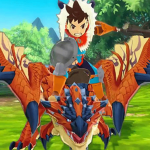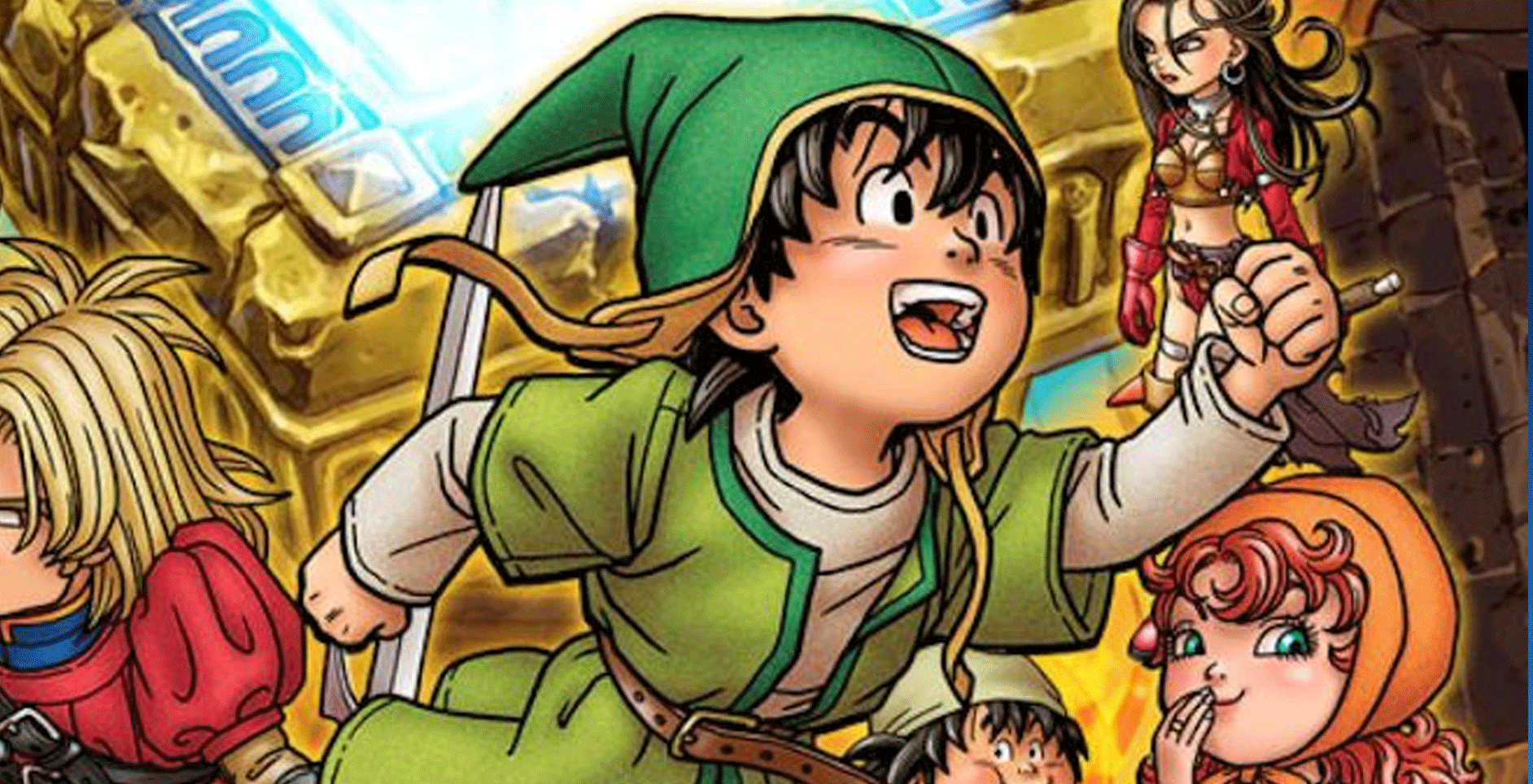We begin on the small island of Estard, in the fishing village of Pilchard Bay. Our protagonist (to be called whatever your heart desires) and the young Prince Kiefer have been exploring things in secret, while their friend Maribel tries to narrow down their sneaking ways. Estard is seemingly the only island on this great planet; and the adults of the land refuse to speculate on anything different. Our three young heroes continue their quest in search of answers and the truth. Until one day, Kiefer and our Hero discover the truth, and the real journey begins. Travelling through time, the crew stumble upon lands long lost and save them from the terrors within, not only helping the people of those lands but returning them and their islands to the present and uncovering a truth about their world that nobody seems to believe.
Dragon Quest VII first appeared on the PlayStation back in 2001, published by Enix (now Square Enix) as Dragon Warrior VII. Even in comparison to modern RPGs, Dragon Quest VII’s campaign (minus the side quests) will run you well into 100+ hours of gameplay – venturing across the lands, obtaining shards to complete the map and save each island across the world, and defeating enemies on your quest. The game has had a graphical overhaul from its days on the PS1; from pixelated sprites on overworld maps and in-battle characters to fully-recreated 3D models. Everything is refreshed and newer, but still retaining that nostalgic sense of yesteryear by ensuring it doesn’t stray too far from its roots. Even the music, which is identical to the original (I looked it up to make sure) has been reorchestrated and sounds fuller and more grandiose. Eager players will be available to jump straight into the action too; the game itself doesn’t have a difficult learning curve. Much of the game’s opening is spent running back and forth for the sake of narrative progression, and you don’t really hit your first battle until you’ve uncovered the first island. By then, it’s a matter of following the simple rules of turn-based combat – attack at will, and make sure your party doesn’t die. And that’s honestly all there is to it – when engaged in battle, players will queue up party moves and the battle will play out before your eyes. Newer special moves unlock the more you battle, and levelling up your characters and grinding away against enemies ensure that you stay ahead of the curve. Just ensure you have enough healing items or spells on you to continuously heal, otherwise you end up dragging a coffin around until you can find a church to resurrect your fallen comrades!
Eager players will be available to jump straight into the action too; the game itself doesn’t have a difficult learning curve. Much of the game’s opening is spent running back and forth for the sake of narrative progression, and you don’t really hit your first battle until you’ve uncovered the first island. By then, it’s a matter of following the simple rules of turn-based combat – attack at will, and make sure your party doesn’t die. And that’s honestly all there is to it – when engaged in battle, players will queue up party moves and the battle will play out before your eyes. Newer special moves unlock the more you battle, and levelling up your characters and grinding away against enemies ensure that you stay ahead of the curve. Just ensure you have enough healing items or spells on you to continuously heal, otherwise you end up dragging a coffin around until you can find a church to resurrect your fallen comrades!
The game employs a class system for units, but this doesn’t come until a little later in the game (when you really need it) allowing the depth of the game’s battle system to come out just that little bit more. As with most RPGs, balance is key so ensuring you have the right offence and defence is always a good strategy. What it also allows the game to do is keep the player involved and entertained with the battle system, as after a while the grinding and fighting gets repetitive.
The overworld is populated with NPCs, as well as wandering enemies which are great for grinding. After a while this might get annoying as you spend your time searching for more fragments to recover the missing islands; however, this time around the fragments are easier to track down compared to the original PlayStation version.
The turn-based battle system, while quite simple, isn’t without its gripes – I found battles beginning to grow long and tedious, more for the fact that while you can tactically get an advantage in harder battles, the majority is just hitting the same actions over and over again. Coupled with slow dialogue (even at fast speed) and unskippable cutscenes, and suddenly it seems as though a few minor issues from the original game have squeezed themselves through the fresh coat of paint. That’s not to say these are game-breaking problems, just noticeable issues that affected my playthrough.
CONCLUSION
RPG fans and people who like extensive gameplay times will absolutely fall in love with Dragon Quest VII; it is a game that retains the sense of nostalgia it imbued almost 16 years ago. Coupled with the wonderful art style of Akira Toriyama (which is why everything looks like Dragon Ball). Old and new RPG fans are sure to find something they love within this game, and aside from a few minor inconsistencies, Dragon Quest VII definitely is a worthy addition to your collection.



